In today’s quickly progressing instructional landscape, the requirement for reliable, thorough, and obtainable sources of information is above ever before. Research Encyclopedias have actually emerged as crucial devices for pupils worldwide, supplying a wide range of knowledge at their fingertips. This write-up explores the significance of Research Encyclopedias, their development over the years, and their function in supporting academic success.

As conventional education and learning methods adapt to electronic innovations, finding out sources like Homework Encyclopedias remain to serve as cornerstones of trainee understanding, giving structured and curated content. Recognizing their worth and impact can aid pupils take advantage of these resources properly in their educational trip.
The Advancement of Homework Encyclopedias
The principle of encyclopedias dates back to old people, where knowledge was carefully documented and protected. From the scrolls of the Collection of Alexandria What is the indicated conjugation of the following verb? to be First person singular, future Pronoun to the printed quantities of the Renaissance, encyclopedias have historically been treasured as repositories of human achievement and understanding.
With the arrival of the electronic age, encyclopedias have transcended their traditional print format, coming to be a lot more interactive and easily accessible. Digital Homework Encyclopedias currently use multimedia resources, consisting of videos, graphics, and interactive components, which improve the finding out experience and make complicated subjects more comprehensible.
Today’s Homework Encyclopedias are not only offered online yet are likewise constantly upgraded to make certain the information continues to be present and pertinent. This shift not just democratizes access to details yet additionally changes just how pupils engage with their researches, assisting in a much deeper understanding through diverse learning modalities.
Secret Advantages of Homework Encyclopedias
Research Encyclopedias use various benefits for trainees, instructors, and even parents sustaining their youngsters’s learning endeavors.

They work as trustworthy buddies, offering structured details that assists in scholastic research study and research completion.
Amongst the most substantial advantages is their ability to supply verified and extensive web content. Unlike open-source info, which can typically be unreliable, encyclopedias are curated by specialists, making certain accuracy and credibility. This integrity is important for students that need reliable information for their tasks and research study tasks.
In Addition, Research Encyclopedias assistance independent understanding and important thinking. By urging students to inquire proactively, they promote a sense of inquisitiveness and campaign, which are important abilities for long-lasting learning.
- Comprehensive Web Content: Encyclopedias cover a wide variety of topics, offering details on subjects spanning numerous self-controls.
- Interactive Understanding: Multimedia elements involve various learning styles, making information absorbable and engaging.
- Integrity: Curated by specialists, encyclopedias learning resource hub give dependable and accurate info.
- Continual Updates: Normal updates ensure pupils have accessibility to one of the most current information offered.
Comprehending these benefits allows students to optimize their learning potential by properly making use of Research Encyclopedias as part of their study routine.
Exactly How to Make Use Of Research Encyclopedias Successfully
To make one of the most out of Research Encyclopedias, students ought to take on strategic approaches to their use. This begins with acquainting themselves with the design and navigation of these resources. Understanding just how to look for specific topics or just how to use index attributes can dramatically lower time invested in study.
Another vital strategy is integrating encyclopedias into wider research methods. While encyclopedias provide foundational knowledge, they ought to be used along with various other research approaches for a much more nuanced understanding of complex subjects. This mix of resources broadens a trainee’s perspective and grows their grasp of subject matter.
Furthermore, trainees must utilize the multimedia features offered in electronic encyclopedias. These can assist in a far better understanding of hard concepts with visualization and interactive knowing, therefore enhancing retention and comprehension.
Top Research Encyclopedias Available Today
The globe of Research Encyclopedias is vast, with countless alternatives offered for pupils of different age groups and scholastic levels. Below are some very concerned encyclopedias that have stood the test of time and continue to sustain trainee success properly.
- Brittanica Online: Widely known for its reliable web content, Britannica provides extensive information on a wide range of topics, with continual updates and multimedia elements.
- World Publication Online: Offers an easy-to-navigate user interface and customized sources for various age, making sure content is age-appropriate and interesting.
- Encarta (Historical): Though no longer in magazine, Encarta set a precedent for digital encyclopedias and continues to be a notable mention for its introducing payments.
- Khan Academy: While not a standard encyclopedia, Khan Academy supplies a substantial collection of academic web content in a layout that enhances typical encyclopedic sources.
These sources offer an exceptional beginning factor for students looking for high-quality information. Their selection makes sure that customers can discover the ideal fit for their specific finding out demands and choices.
The Future of Research Encyclopedias
As modern technology remains to breakthrough, the future of Homework Encyclopedias appears encouraging, with technologies focused on enhancing customer experience and accessibility to information.

Artificial intelligence is likely to play a substantial function, using tailored discovering courses and more user-friendly search features, which can revolutionize just how students engage with these sources.
Moreover, the integration of online and enhanced reality could open new chances for experiential understanding, enabling trainees to involve with material in immersive environments. Such advancements are set to redefine the academic landscape, making learning more interactive and impactful.
The Role of Educators and Trainees
In this developing context, instructors and students have to adjust to utilize these technological improvements effectively. Educators can assist trainees being used encyclopedias as component of their educational program, urging critical thinking and research skills.
For students, the key hinge on staying curious and open to exploring brand-new tools and sources. By accepting Homework Encyclopedias and similar educational modern technologies, they can enhance their academic efficiency and prepare for the challenges of tomorrow’s knowledge-driven world.
